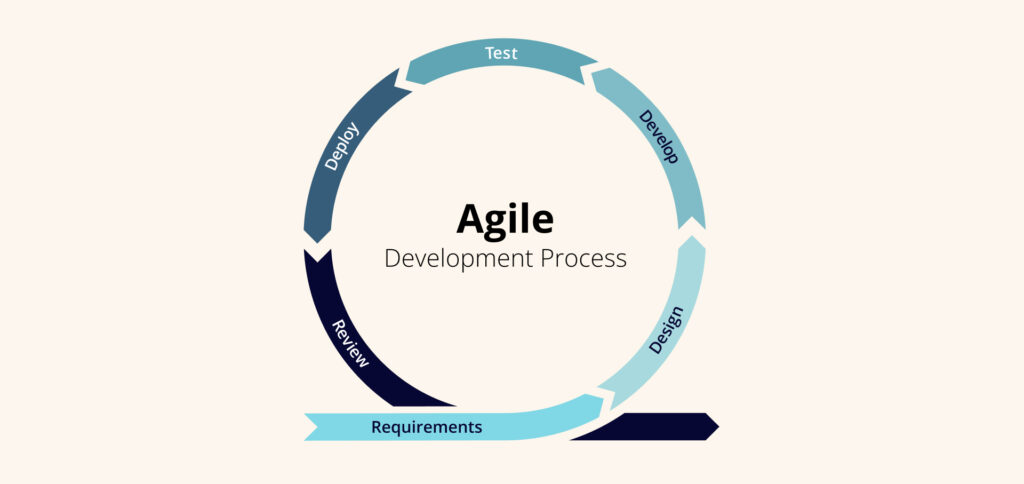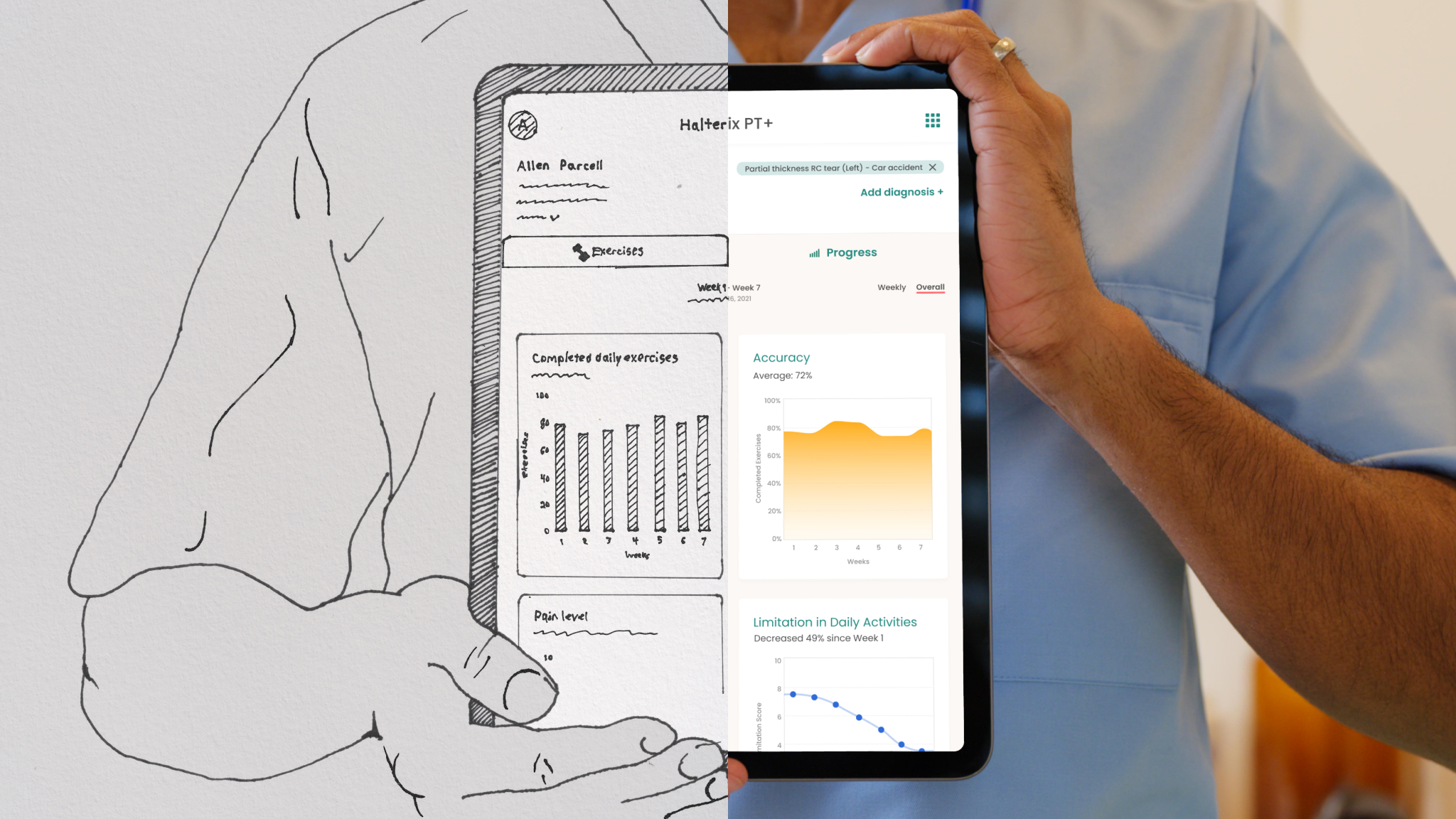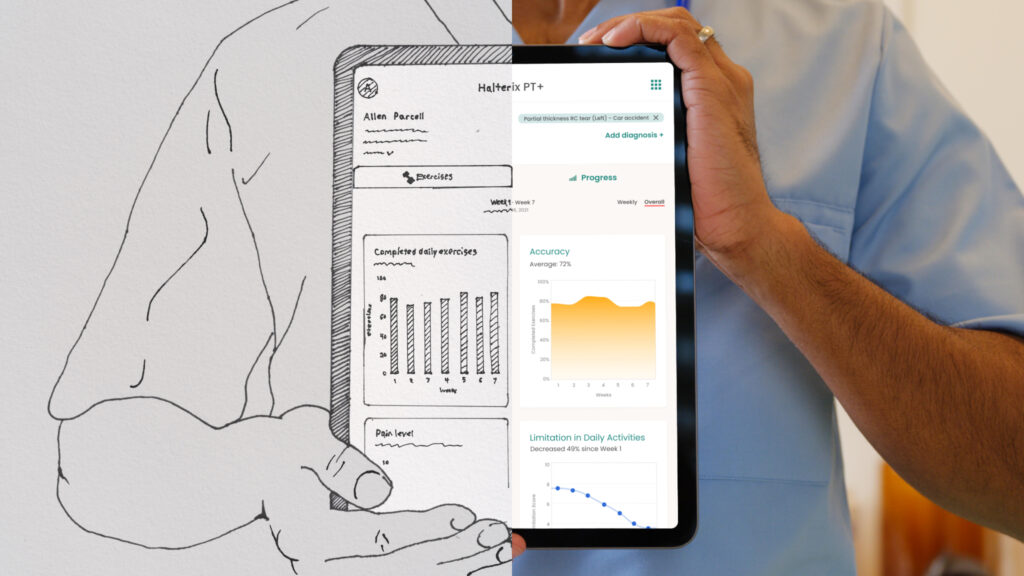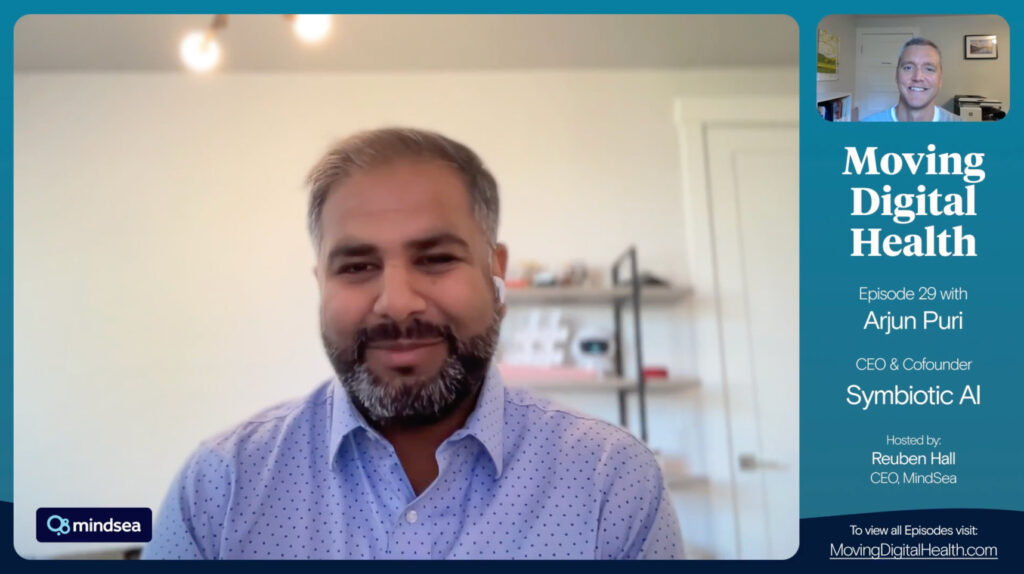Digital health apps are reshaping healthcare and transforming patients’ lives with every download. Whether it’s through remote patient monitoring, collecting accurate health data, connection to other patients, improving workflow efficiency and experience to ease the burden on physicians, or even virtual consults, the possibilities these apps open up often seem endless.
Universities and academic institutions are a great starting place to test digital health interventions. You need the evidence that the intervention improves the standard of care before it can be widely adopted, typically in a research study or clinical trial. Digital health app development requires an approach that matches up with that. While some of the challenges remain the same, it just isn’t the same as working within a tech startup or private healthcare organization.
Drawing on our experience of working with academic institutions and universities to build healthcare apps, we’ve taken a closer look at the key challenges and offered potential solutions to pave the path for a successful academic digital health app development process and launch.
The Challenges
When we first start working with researchers and academics, we often find that they have tried to build a digital health app in the past. However, they’ve run into issues that stem from factors such as poor user experience, low adoption, lack of support, and data privacy concerns, as we explain below.
Lack of Expertise Gives You the Jitters
App development isn’t within the wheelhouse of most academics. It’s a specialist skill with many different facets that takes time to learn. It’s common for researchers to get the jitters on their digital health app development journey. They don’t know the jargon and they’re not sure what the process will look like. The path ahead seems confusing and marred with potential pitfalls.
Technical Skills Alone Aren’t Enough
One situation that we’ve encountered fairly often is academic institutions that have used student programmers within their own organization to help them build an app and it hasn’t worked out.
It might seem like a good idea at the time, but simply knowing how to write code or having a theoretical knowledge of software development principles doesn’t mean they can write commercial code or develop a digital health app. The end result is an app that isn’t user friendly, doesn’t scale, is glitchy, crashes, and is just cumbersome and awkward overall.
Students also have competing priorities like their course work and they come and go from semester to semester, which means there is a lack of consistent, reliable support. Finding the people with the right skills is time-consuming, and then getting everyone on the same page is another challenge.
Fails to Meet User Needs
The goal of digital health apps is to make life easier for patients or people struggling with health issues. An app shouldn’t feel like it’s placing an extra burden on patients’ shoulders. However, if the design is flawed due to the above issues and you haven’t carried out research to understand what patients really need, then adoption will be low, and the app won’t be able to fulfill its purpose.
Making sure the app hits the mark with the target audience through strategic, phased rollouts, such as beta groups, feedback collection, and continuous improvement work, is key, but it’s not easy to achieve, especially if you’re using in-house resources.
No Post-Launch Support
Building an app is just the first step, but what will happen once it is released? Who will maintain it, update it, and deal with bugs post-launch? Some companies build your app and leave you to support everything and figure it out, but a good digital health app development partner is willing to continue to be an extension of your team to help build successful products.
Researchers have a great clinical understanding, but they need help with not only designing the app, but figuring out how to roll it out and maintain it when it’s live. This kind of maintenance requires a deep understanding of the app’s underlying technology.
Data Privacy and Security Concerns
Health researchers have specific, stringent privacy and security requirements and compliance needs (HIPAA, PIPA, GDPR, PIPEDA, to name just a few). This includes holding data within the relevant country, which many digital health app developers don’t offer.
Alongside national legislation, researchers also have to consider institutional requirements. The app needs to meet the ethics requirements and other privacy and security standards set by their internal review boards. Currently, there is a lack of a standard approach to building an app and, with that, a lack of knowledge of standard processes and requirements.
The Solutions
Choosing a digital health app development company with experience in both technical and healthcare spaces gives you access to the necessary skills to overcome the above challenges.
Don’t Underestimate Industry Experience
Developing digital health apps in an academic setting is different to building the same technology for businesses, which is why you should work with a company with experience in working with academic institutions and within their frameworks and requirements. You also get a cross-functional team, including product managers, UX designers and QA testers (not just developers), that is forward thinking and a true extension of your vision.
A digital health app development company can offer regular project reporting, which provides information on factors such as progress and budget. This allows problems to be flagged early on.
Knowledge is power, your digital health development app partner will explain the process clearly to give you the information you need to make a decision. Instead of feeling like the whole app development process is a black box, you get clarity on what is happening at each stage to ease your jitters. You’ll also receive a realistic estimate of costs based on the many products the company has previously worked on.
Agile Development Overcomes Perfectionism

Researchers are often perfectionists, high achievers who want their app to be able to do everything they imagined before they launch it. But that isn’t always practical, which is why the agile development method is so important.
Maybe you’ve made a list of 20 features you’d like your app to have before you’ll consider showing it to users. But building all those features will take years, and you don’t want to wait that long before launch. An agile development method focuses on the most important features (say five to eight core features, as an example), makes sure those are perfect, and then launches.
Once you’ve launched, the digital health app development company will then work on adding in more features gradually and updating the app each time you’ve perfected the new functionality.
Get To Know Your Users
User story mapping helps overcome poor adoption by making sure the app meets the needs of your target audience. For example, how and when would they use the app? What features do they need? What layout works best? What are their unique needs?
User story mapping is a structured way of brainstorming what the product needs to do and putting the patients at the forefront of app development. It helps us get a well-rounded idea of what the prospective user base needs and what we need to know about them before we start with the development process.
Develop a Prototype
Developing a prototype for an app helps overcome the issues of lack of user adoption and poor usability. When we develop an app, we test all the features, main user flows, and overall journey based on real-world scenarios before we start to code and build it.
Once the prototype is ready and the researchers have signed off on it, we’ll conduct the usability testing.
User Testing is Key

When we get users to test an app, we can spend about an hour with them testing how everything works. We ask them to imagine they are in a situation relevant to the app’s purpose and then ask them what they think they need to do to complete the task. We watch them use the app, note if there are areas that they struggle with or if something doesn’t flow, and then document their feedback.
We sometimes have to hand this process over to the researchers to lead due to ethics board requirements.
Take Development Onshore
You may not be surprised to hear that a lot of app development companies aren’t local to your institution and may store your data outside your country. To overcome data privacy and security issues, choose an onshore app development company. For example, if your institution is located in Canada or the US, you can use exclusively onshore developers, the data is stored in Canada/US and secure for users, and it also meets local data privacy regulations. The data isn’t leaving the country and coming back again.
If the development team and the entire process can be conducted entirely within Canada/US that counts as an extra onshore resource that adds an extra layer of security.
Ongoing Tech Support Service
When you launch the app, you won’t be on your own if you’ve chosen the right app development partner. They will be able to provide an ongoing tech support service and post-launch support.
They also understand the technology inside out, so they can work within its potential as well as its limitations. This includes developing a product roadmap that takes into account the technical specs and long-term goals of your app.
A Blueprint for Academic Digital Health App Development Success
At Mindsea, we’ve worked on developing digital health apps for many universities and academic institutions., We use the insight gained from working with researchers and academic institutions to create a blueprint and a product roadmap that is built exclusively for your users. For example, we worked with the Sunnybrook Research Institution to build an app that evaluates and shares patients’ exercise data with practitioners through a smartwatch.
If you want a partner in your digital health app development journey, get in touch with Alex today.



